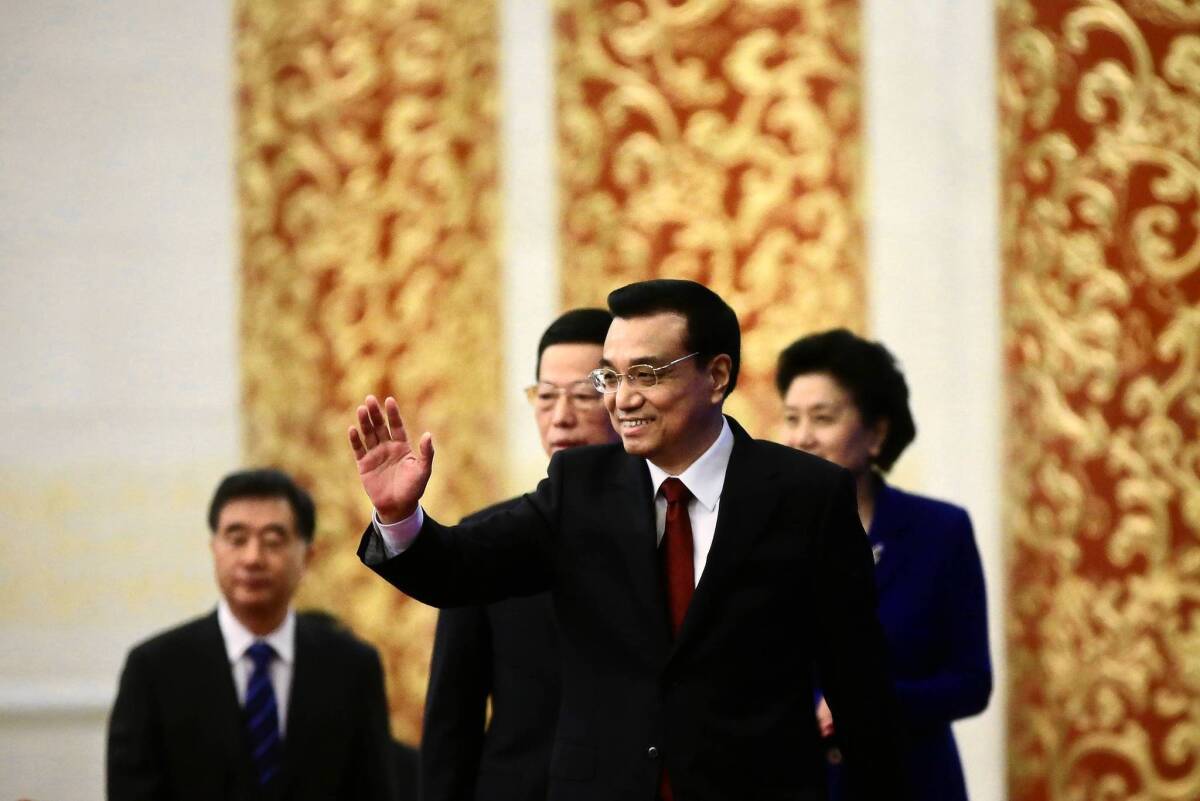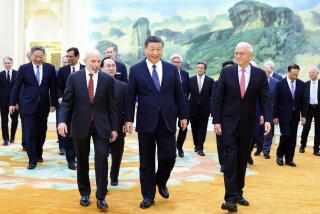China leadership focuses on transparency

- Share via
BEIJING — Frugality, transparency and fairness are among the buzzwords for China’s newly installed leadership.
In the final meeting Sunday of a 12-day legislative session that concluded a once-in-a-decade power transition, President Xi Jinping and Premier Li Keqiang hammered at similar messages.
Speaking at a news conference that closed the National People’s Congress, Li called for a moratorium on new government offices and guesthouses along with a reduction in government payrolls and official cars.
“The central government will lead by example and lower levels will follow suit,” Li told assembled reporters inside the imposing Great Hall of the People on Beijing’s Tiananmen Square.
Uncontrolled spending on lavish buildings has been a source of public outrage, especially in the provinces, which have seen some of the most disproportionate excesses. One of the poorest counties in the eastern province of Anhui built a $45-million government building eight times larger than the White House. A remote city in the southern province of Jiangxi erected what it said was the largest mechanical clock tower in the world.
Whereas newly retired President Hu Jintao spoke constantly about “harmony,” the new leadership seems more intent on fairness.
Xi, installed as Communist Party secretary in November, has spoken frequently about reducing official privilege. In the final legislative session Sunday, Xi called on delegates to “resolutely reject formalism, bureaucracy, hedonism and extravagance, and resolutely fight against corruption and other misconduct.”
However, the ban on new buildings was one of the few specific pledges to emerge from the session.
The legislature deferred until later this year a much-ballyhooed plan to abolish forced labor camps where people are “reeducated” without trial. The congress also failed to move on one of the most highly touted measures, which would have required public disclosure of the assets of government officials, their spouses, siblings and children.
Most of China’s top leaders come from families with assets worth hundreds of millions of dollars, the result of a culture of privilege that allows relatives to parlay connections into vast wealth without explicitly breaking any laws.
Li, 57, is one of the more down-to-earth of the new generation of officials, the son of a mid-level official in Anhui province. Round-faced and bespectacled like his predecessor, Wen Jiabao, he spoke with more animation in the news conference than most other leaders, breaking into an occasional smile.
Among other promises, he pledged to bring more rural students into China’s top universities. He repeatedly stressed equality of opportunity and fairness.
Asked about pollution, he acknowledged he found the haze over Beijing to be “depressing.”
“Just as it is not good to be poor in a beautiful place, there is no benefit in being rich in a degraded environment,” said Li.
More to Read
Sign up for Essential California
The most important California stories and recommendations in your inbox every morning.
You may occasionally receive promotional content from the Los Angeles Times.










